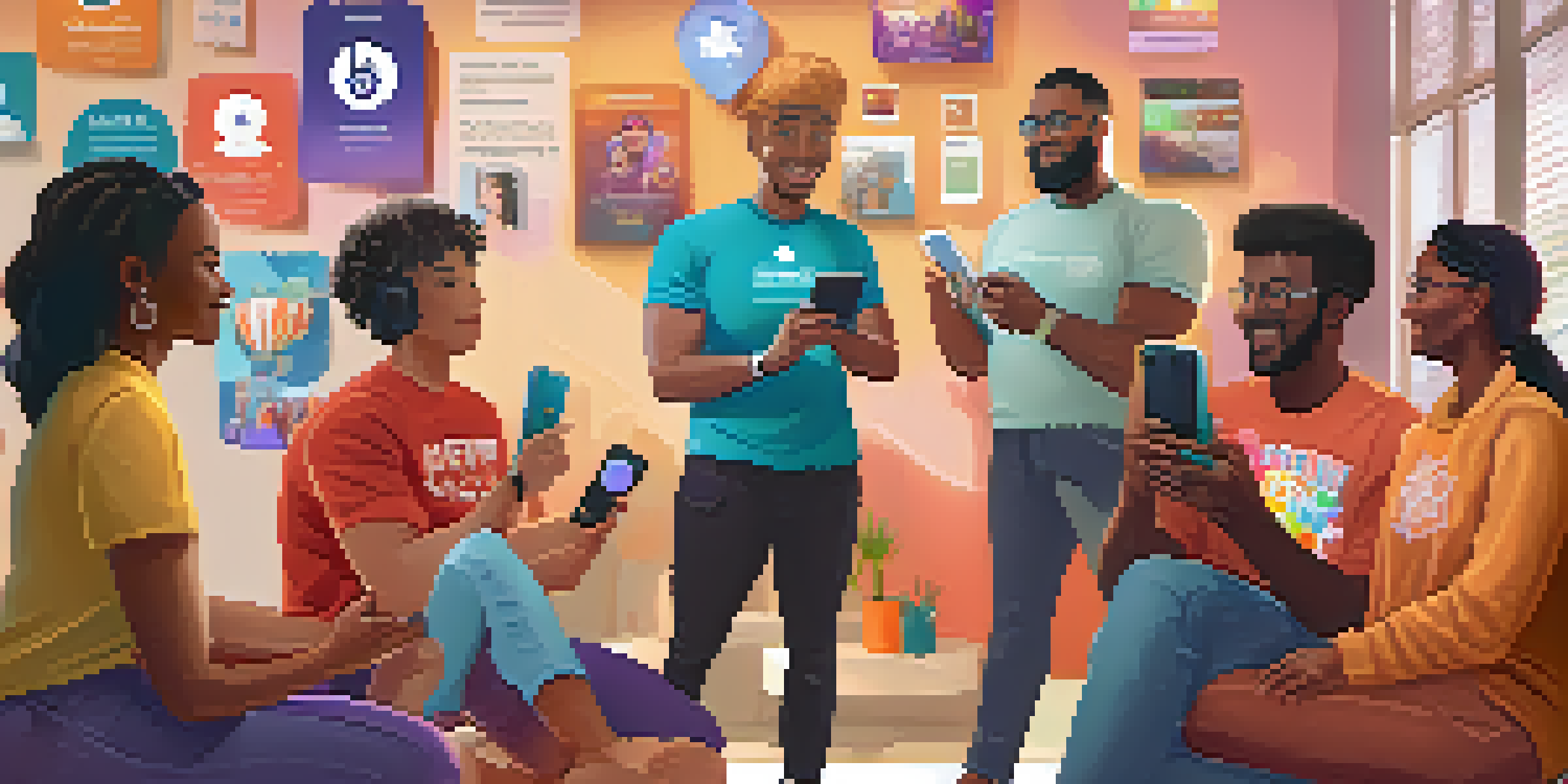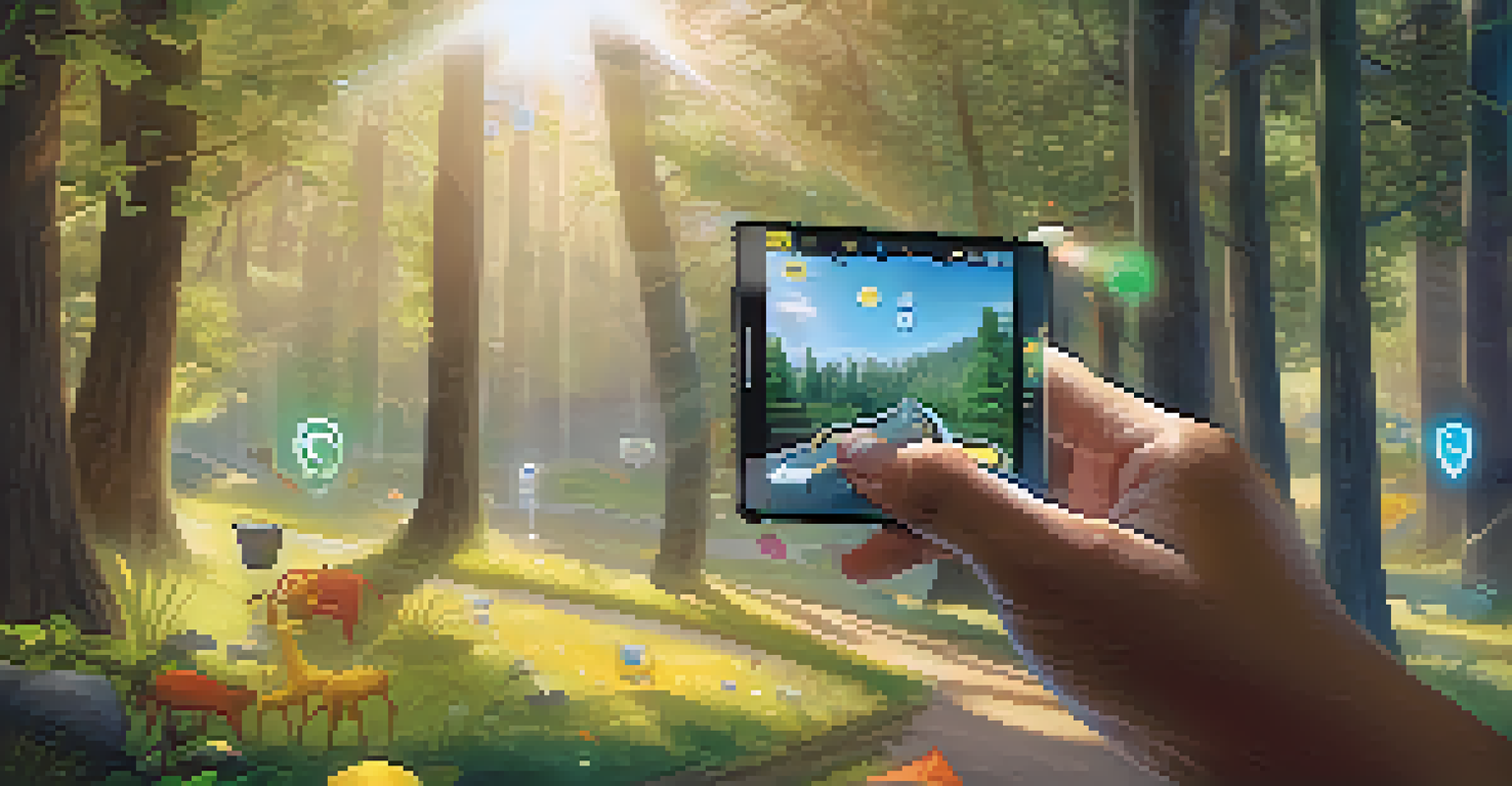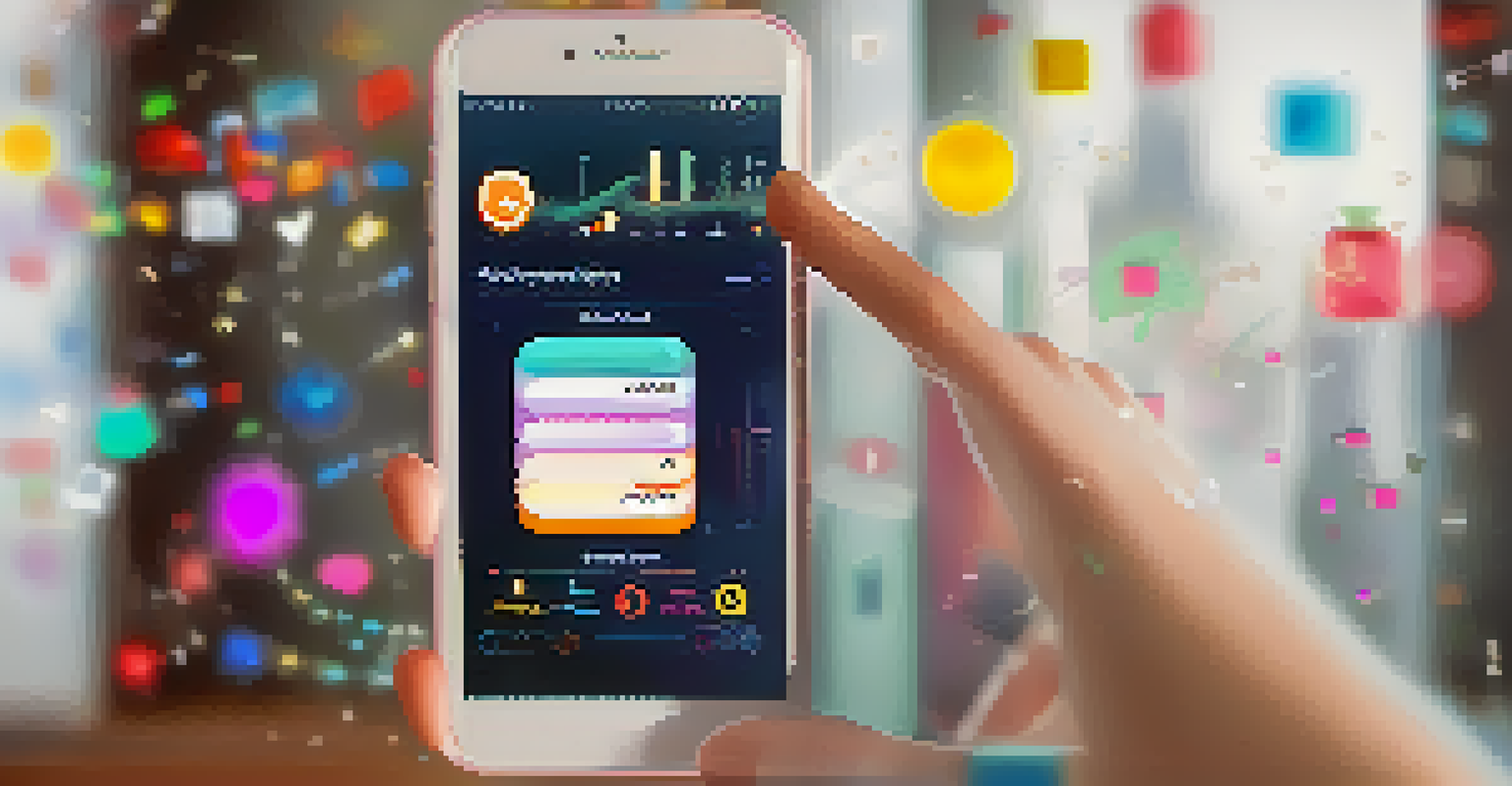Gamification in Recovery: Mobile Apps That Engage Users

Understanding Gamification in Recovery
Gamification harnesses game-like elements to boost user engagement, especially in recovery contexts. By integrating points, badges, and challenges, these apps make the recovery process more interactive and enjoyable. This approach aims to motivate users to stick with their recovery journey, making it feel less like a chore and more like a game.
Gamification is the application of game-design elements and principles in non-game contexts.
Imagine turning a daunting task, like tracking your sobriety or managing mental health, into an exciting quest. Users often feel more empowered and less isolated when they're part of a community working towards similar goals. The sense of accomplishment from achieving small milestones can significantly enhance motivation and resilience.
Ultimately, gamification not only makes recovery more engaging but also helps users develop healthier habits. By embedding these elements into mobile apps, developers are creating a supportive environment that encourages users to stay committed to their goals and celebrate their progress.
Key Features of Gamified Recovery Apps
Successful gamified recovery apps share several core features that enhance user experience. These include customizable avatars, daily challenges, and social sharing options, all designed to foster a sense of community. By allowing users to personalize their journey, the apps become more relatable and engaging.

Another critical feature is the use of feedback mechanisms, such as progress tracking and rewards. When users can see their progress visually, whether through graphs or badges, it reinforces their efforts and keeps them motivated. The instant gratification from earning rewards can be particularly powerful in maintaining engagement.
Gamification Enhances Recovery Engagement
By incorporating game-like elements, recovery apps make the process more interactive and enjoyable, motivating users to stay committed.
Furthermore, many apps incorporate reminders and notifications that encourage users to check in regularly. These gentle nudges help establish routines, making recovery feel more structured and less overwhelming. All these elements together create a comprehensive and engaging recovery experience.
Popular Gamified Recovery Apps to Consider
Several mobile apps have successfully implemented gamification in their recovery processes. One standout is 'Sober Grid,' which combines social networking with gamified features, allowing users to earn points for sobriety milestones. This app creates a supportive community while providing fun challenges and rewards.
The greatest danger in times of turbulence is not the turbulence; it is to act with yesterday's logic.
Another notable app is 'I Am Sober,' which focuses on tracking sobriety days with a visually engaging interface. Users can earn achievements as they reach various milestones, making the journey feel more like an adventure. The community aspect also allows for sharing successes and struggles, reinforcing the social support vital in recovery.
Lastly, 'Recovery Record' stands out by gamifying mental health recovery. It uses a point system to encourage users to complete daily check-ins and exercises, fostering consistency. These apps not only enhance user engagement but also offer valuable tools for maintaining sobriety and mental well-being.
The Role of Community in Gamified Recovery
Community is a vital component of recovery, and gamified apps often emphasize this aspect. Features like forums, chat rooms, and group challenges provide users with a platform to connect and share experiences. This sense of belonging can significantly reduce feelings of isolation that many individuals face during recovery.
When users engage with others who are on similar journeys, it creates a supportive environment where they can exchange tips, successes, and challenges. This peer support often leads to higher motivation and accountability, making it easier for users to stay on track. Gamified elements, such as team challenges, also foster collaboration and friendly competition.
Community Support Boosts Motivation
Gamified recovery apps foster a sense of community, allowing users to connect and share experiences, which enhances accountability and support.
The combination of gamification and community can create a powerful support network. Users not only feel encouraged to achieve their goals but also have a space to celebrate their victories and seek help when needed. This dual approach significantly enhances the overall recovery experience.
Benefits of Gamification in Recovery Apps
The benefits of gamification in recovery apps are multifaceted, impacting both engagement and success rates. Firstly, it transforms the often monotonous tasks of tracking progress and completing exercises into an enjoyable experience. This transformation can lead to increased user retention and commitment to recovery goals.
Moreover, gamification encourages users to adopt healthier habits by reinforcing positive behaviors. When users receive immediate feedback and rewards for their efforts, they're more likely to keep engaging with the app. This ongoing interaction helps solidify the routines necessary for long-term recovery.
Lastly, gamification can also reduce the stigma associated with recovery. By framing the journey as a game, users may find it easier to share their experiences and seek support. This shift in perspective can lead to greater openness and acceptance of the challenges faced in recovery.
Challenges of Implementing Gamification
While gamification offers numerous benefits, implementing it in recovery apps does come with challenges. One primary concern is ensuring that the game elements don't trivialize the seriousness of recovery. Developers must strike a balance between fun and the gravity of the recovery journey to maintain user trust.
Another challenge is the risk of creating competition that could lead to negative feelings among users. If not handled sensitively, gamification could foster envy or inadequacy among those who struggle to achieve certain milestones. It's crucial for developers to create a supportive atmosphere that celebrates everyone's progress, regardless of pace.
Personalization Improves User Experience
Tailoring challenges and rewards to individual preferences can significantly enhance engagement and effectiveness in recovery apps.
Additionally, not all users may respond positively to gamification. Some individuals might prefer a more straightforward approach to recovery without the added pressure of earning points or badges. Understanding user preferences and providing options for customization can help mitigate this issue.
The Future of Gamification in Recovery Apps
As technology continues to evolve, the future of gamification in recovery apps looks promising. Innovations like virtual reality (VR) could offer immersive experiences that engage users in new ways. These advancements may provide unique opportunities for users to practice coping strategies in realistic scenarios.
Moreover, as data analytics becomes more sophisticated, apps can provide more personalized experiences. Tailoring challenges and rewards to individual user preferences and behaviors can enhance engagement and effectiveness. This level of customization could significantly improve the overall recovery experience.

Ultimately, the ongoing integration of gamification in recovery apps holds great potential. By continually adapting to user needs and leveraging new technologies, developers can create even more engaging and supportive tools for those on their recovery journeys.